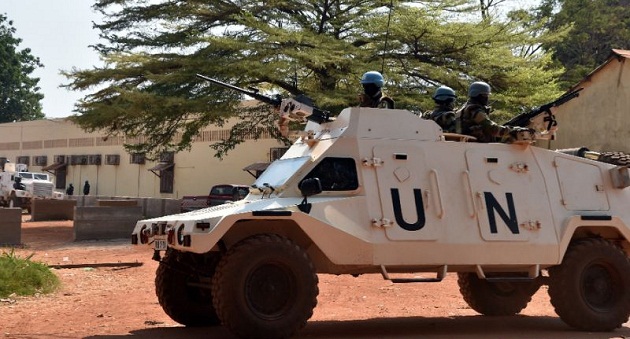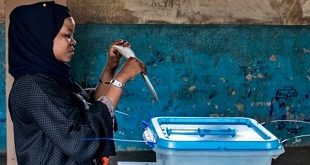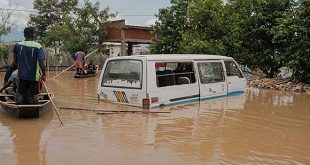
Bangui, Central African Republic | AFP |
The United Nations will do “everything in its power” to prevent further atrocities in the Central African Republic, a top UN official said on Thursday at the end of a three-day visit.
UN Deputy Secretary-General Jan Eliasson was addressing lawmakers in the capital Bangui a day after Human Rights Watch called on the UN to do more to protect civilians caught up in fighting between armed groups or being targeted by them.
“October was particularly violent,” Eliasson said in parliament on Wednesday, referring to attacks in which over 70 people died.
“We have learnt lessons from these dreadful events and will do everything in our power to prevent such atrocities,” he said.
On Monday, France withdrew its own military mission which it deployed in CAR in December 2013, leaving the UN’s 12,500-strong MINUSCA peacekeeping mission to protect civilians from armed groups.
On Tuesday, Human Rights Watch said the UN “should urgently deploy more of the mission’s forces to the volatile central region, expand their patrols and, consistent with the mission’s mandate, use appropriate force to protect civilians under imminent threat”.
According to HRW, witnesses to an October 12 attack in the town of Kaga-Bandoro said 200 UN peacekeepers “failed to stop at least 60 (rebel) Seleka forces from crossing a UN-guarded bridge and attacking civilians”. Thirty-seven people died.
On Wednesday, Eliasson said the CAR government, the European Union, the UN and the World Bank had drawn up a “national recovery plan” that would be presented to a donors’ conference in Brussels on November 17.
Visiting the scene of Sunday’s clashes, in a district of the capital called PK5, he told residents, “I have come to hear your grievances so as to present them in Brussels.”
One of the world’s poorest countries, CAR has scarcely emerged from the chaos of civil war which erupted in 2013 following the overthrow of former president Francois Bozize, a Christian, by Muslim rebels from the Seleka coalition.
Armed groups have flourished over the years given the weakness of the state. Among the main culprits are factions from the mostly Muslim former Seleka rebel force, and the Christian “anti-Balaka” (anti-machete) militias, a reference to the rebels who use machetes.
 The Independent Uganda: You get the Truth we Pay the Price
The Independent Uganda: You get the Truth we Pay the Price


